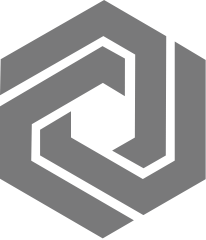Laboratory Information Management Systems (LIMS) offer labs tremendous benefits relating to increased efficiency, accuracy, and access to data that is needed to produce ground-breaking results at every level. Choosing a LIMS software provider can be difficult.
LIMS is all about efficiency and accuracy, which in the laboratory field, means everything because it generates immediate benefits that eventually lead to conclusive results. It also eliminates many risks created during manual processes.
Most laboratories understand the important role LIMS software solutions play in their lab systems. However, fewer know how to distinguish good LIMS from great. So how can you choose the right LIMS software for your operations?
At LABWORKS, we have worked with hundreds of labs around the world and across diverse industries and we feel like we have seen it all, the good and the bad. We would like you to avoid the bad so we put together a list of criteria we feel you should consider when considering your LIMS software needs.
Here are several factors to look for as you consider your next LIMS solution:
5 Criteria to Look for in Your New LIMS Software
Usability
Usability may seem like an obvious one but there are many aspects to Usability that are often overlooked. At the most basic level the LIMS solution must meet all of your lab’s needs but oftentimes, “Lab’s needs”, is narrowly interpreted as sample/analysis management when it should be that and much more. LIMS systems used to be only about tracking a sample and its analyses but today, leading LIMS solutions provide solutions for project management, batch, inventory management, compliance, instrument management, personnel management, customer management, and much more. Think beyond the sample/analysis paradigm and make sure you choose a LIMS that provides all the components you need to manage all aspects of your lab needs both now and in the future.
LIMS systems have evolved over the past 30 years and as they have, leading LIMS vendors have developed specific solutions for specific industries. These vertical products incorporate industry specific best practices and provide a more tailored and cost effective solution to your needs. You don’t have to settle for a generic system that you have to configure, or worse, customize to fit your needs because there are already solutions that meet your needs. LABWORKS has many industry specific solutions including water/wastewater, environmental, agriculture, chemical manufacturing, petroleum and others.
Usability is often confused with “Look and feel”. While look and feel are important aspects to consider don’t be overly enamored with how a solution looks. Because it is what’s under the hood that matters and sometimes a nice look can mask what is lacking below. Find a good functional fit first and then consider the “Look and feel”.
Architecture Options
A good LIMS should provide you with options relating to how users interact with the application such as desktop, web browser, and mobile device or on-premise, SaaS, or hosted/cloud.
Traditionally, our customers were all on-premise environments. However, our new customers and many of our existing customers are requesting cloud/hosted solutions. While LABWORKS offers on-premise and cloud, we highly recommend considering a cloud solution because it is fast to set up, it is usually less expensive than internal IT resources, it reduces the load on already stretched IT resources and many of our customers see increased performance via the cloud vs. their own internal network. While there are many benefits of a cloud, architecture labs must consider internal lab instrument integration and integration with other corporate systems will work in the cloud environment. There are solutions to these situations but they must be considered early and with the input from IT network and security resources.
Just like putting too much emphasis on “look and feel” is a pitfall, don’t be too enamored by solutions that offer “Browser based” solutions. Browser/web based solutions are nice because they can be accessed from any computer and they reduce the burden on IT by not having to install clients. However, in the past many web based solutions compromised on speed, efficiency, and ease of use because web technologies simply could not keep up with desktop UI design and performance. This is changing rapidly as web technologies advance but it is important to once again, look beneath the surface, and make sure the architectures meet your needs. LABWORKS provides desktop, web, and mobile solutions and each solution can be used in parallel. This is important because each type of solution may be best suited for a user based on their role and the functions they need to perform. For example, an administrator doing more difficult tasks such as designing a new report may benefit by using the desktop, while an analyst entering results and using a tablet may be best suited for the web interface, and a user out in the field or at the plant may be best off using the mobile solution. The key here is options suited to the situation or user.
Flexibility
All LIMS systems require some “Configuration” to ensure the system is aligned to your processes and personnel. However, you should seek to avoid any LIMS solution that requires more than a little “Customization”. What’s difference? Configuration is defined as modifying the system by using the solutions internal tools to achieve the desired result. Internal configuration tools usually involve turning a certain parameter on or off, setting a definition, inputting meta-data, defining user permissions, etc. In short, configuration can be done without any programming and can usually be done by a non technical resource. “Customization” is making the solution do something it can’t do on its own and it usually requires development done by a technical resource. 95% of LABWORKS implementations have ZERO customization while there are some popular LIMS solutions that require customization to the extent that they have their own proprietary programming language. Customized solutions are more expensive, cost more, and are more difficult to maintain and support.
While the difference between configuration and customization is pretty clear, it is important to know that not all configuration is created equal. Meaning that there are many varying degrees of configuration and flexibility. For this reason it is important to provide vendors with your most unique or difficult scenarios and see, via a demonstration, on how they handle those cases. Recently, we were contacted by a large municipal water district. They had gone through an RFI and a RFP process, had evaluated 10 LIMS vendor responses, and had conducted all day on-site demonstrations with a few of the finalists. Somehow, we/Labworks, were not aware of the RFI or RFP and thus did not participate in the process. For some reason and after all the research they had done, they reached out to us and asked for an online demo the next day. We did the LIMS software demo and they invited us to visit them the next week for an all day discussion and demonstration. They spent the day throwing different scenarios at us to which were to respond by showing them, without any preparation how our LIMS solution addressed the scenarios. It was an intense day and we are now one of two finalists. We mention this to highlight what some customers do to ensure the LIMS they are considering is the right fit and to show the type of flexibility you should be looking for in a LIMS solution.
People and Culture
In addition to the items we have mentioned we could spend a lot more time writing about the importance of analytics, workflow design, performance, etc. As important as those items are they are not as important as another item that has nothing to do with the LIMS solution, namely “People and Culture”. Because you are going to live with your LIMS system for the next 10-20 years it is important to find a LIMS partner that is a good fit based on their people and their culture. A software vendor is only as good as the people they assign to your implementation and your ongoing support. The people assigned to your implementation should be experts not only in the LIMS product but experts in lab operations also. As experts they should bring best practices to your implementation. Because these resources gain knowledge of your lab’s people, processes, and technology, these same resources should continue to support you long after the initial implementation. For example, at Labworks, we assign a Technical Account Manager or TAM from the implementation, to the customer. The TAM is assigned to the customer indefinitely and continues to consult with the customer on important topics like upgrades, new functionality, issues, strategic direction, industry trends, certifications, regulatory compliance, etc.
The culture of the vendor is important because it is reflected in the way they support customers, the way they develop new products, and in the way they price services and software. Is the culture sales and marketing driven or are they focused on customer support and satisfaction. Are they focused on costs or on product innovation. While these contrasts are not mutually exclusive it is important to meet the people and understand the vendors focus and approach on sales, support, pricing, product development, amongst others.
Related to culture, the LIMS space is quite competitive. This competitiveness has given way to a growing trend or culture for companies to say and do anything and to price far below value simply to “Get a foot in the door.” Once in the door, they will make up for any low LIMS prices by charging for every little thing. Price is important but beware of this all too common practice.
LIMS Software by Labworks
A leading LIMS software solution since 1985, Labworks is committed to excellence in all that we do, from product development and innovation to customer support and satisfaction. We do what it takes to guarantee your success. Count on Labworks to provide all of the functionality and tools needed to manage and automate all of your lab management needs
You can trust Labworks for all your LIMS software needs. Labworks has incorporated industry and lab best practices that will immediately improve your lab operations. Our team of experts will work closely with you to ensure Labworks meets your immediate and long-term needs.
Learn more about leading LIMS software through the LABWORKS software demo.




